
North Carolina Mosquito Identification
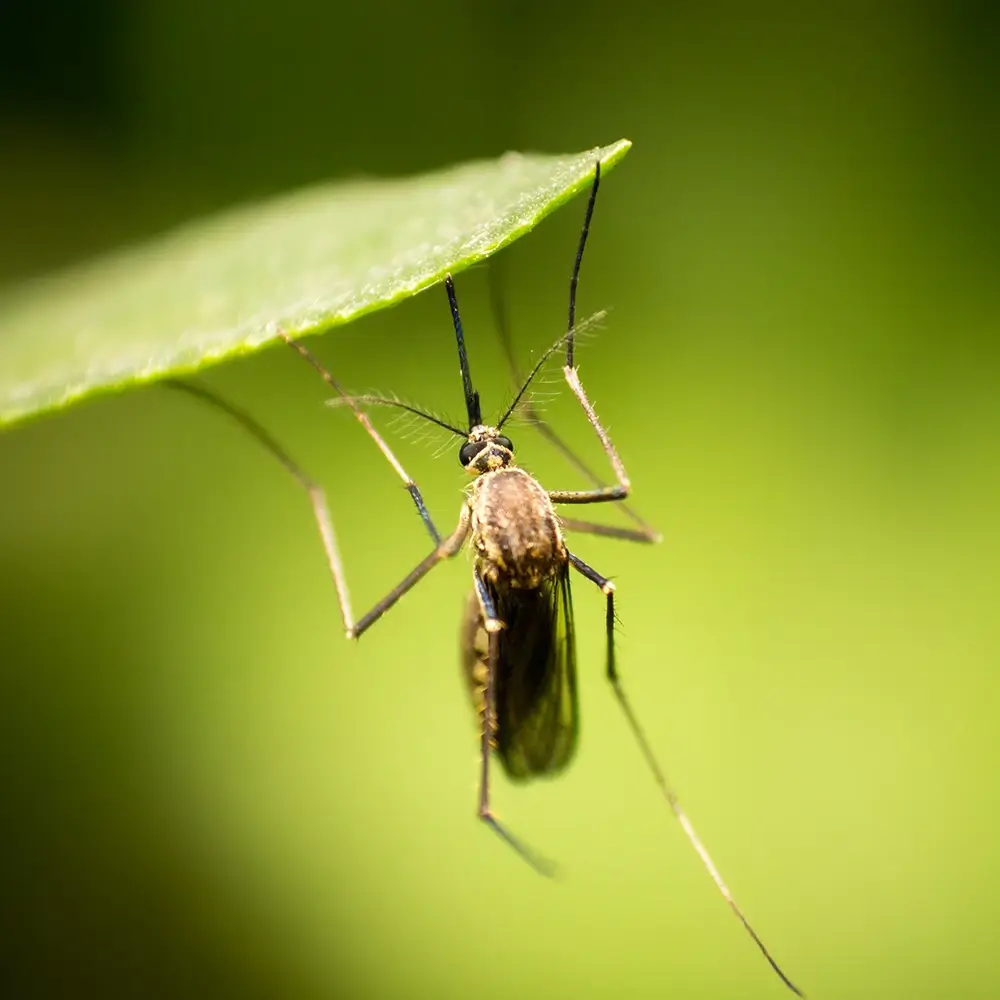
Bug Identifier: Know Your Mosquitoes
North Carolina’s nearly-constantly humid climate and varied landscape make it an ideal home for a wide range of mosquito species. Understanding the types of mosquitoes found in the state and how to identify them is crucial for quality mosquito control—and for safeguarding yourself from the potential health risks they present.
Mosquito Identification in North Carolina
Mosquitoes are slender, fragile insects with long, thin legs and a pair of delicate wings. They typically measure between 3 to 6 millimeters in length and come in various species, each with its own distinct markings and behaviors. Female mosquitoes are notorious for their painful bites, as they feed on the blood of animals, including humans, to nourish their eggs. Males, on the other hand, primarily feed on nectar and do not bite.
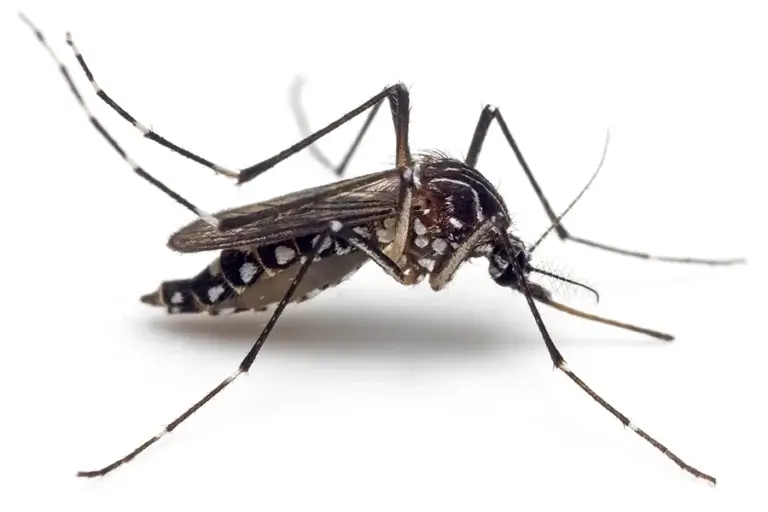
The Yellow Fever Mosquito
Also known as the “Aedes aegypti”, the yellow fever mosquito is a small mosquito with distinctive white markings on its legs and a silvery-white lyre-shaped marking on its thorax. They are the species primarily responsible for transmitting diseases such as Zika virus, dengue fever, and chikungunya.
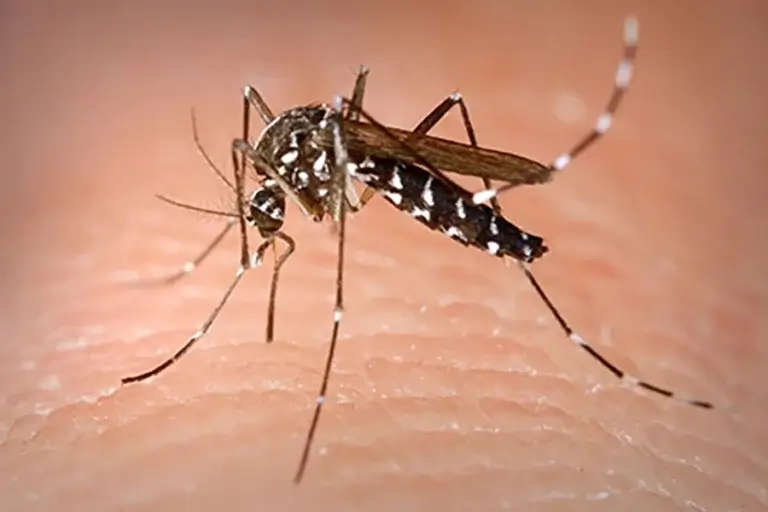
The Asian Tiger Mosquito
The Asian tiger mosquito also known as the Aedes albopictus, is recognized by its striking black and white striped legs and body. This aggressive mosquito is a vector for diseases like Zika virus and West Nile virus.
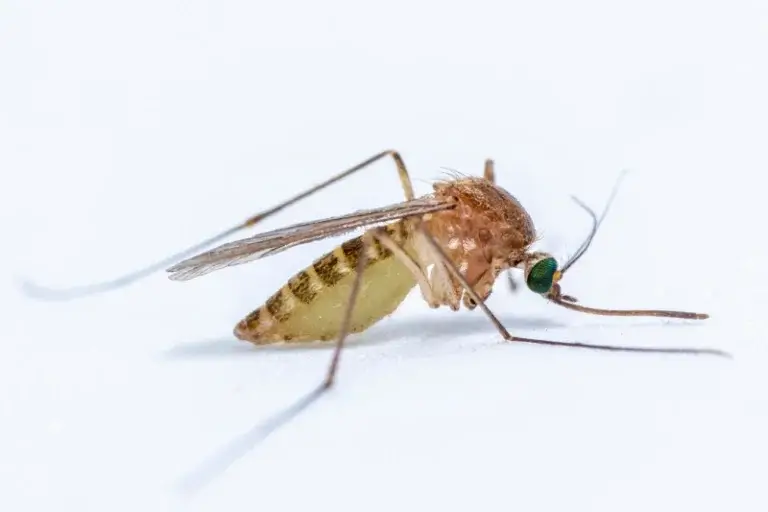
The Northern House Mosquito
Commonly known as the northern house mosquito, or the culex pipiens, is a brown mosquito with a noticeable proboscis—an elongated appendage protruding from the head of an animal, a little like a trunk.
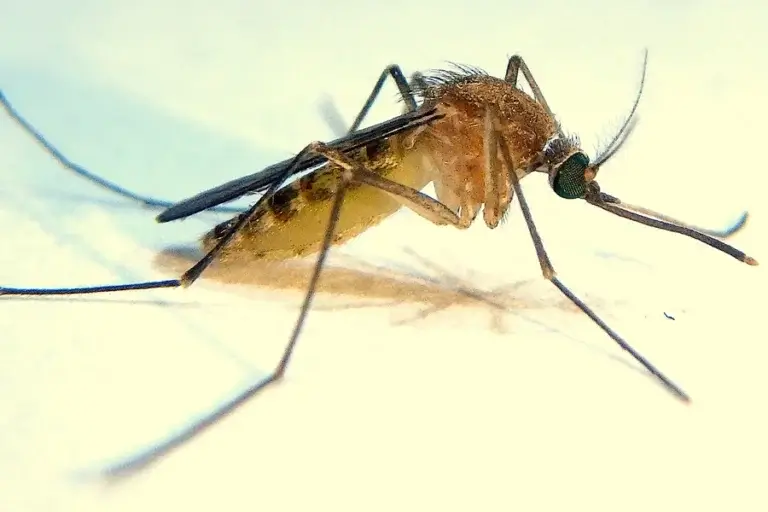
The Southern House Mosquito
This mosquito, also known as Culex restuans, is similar in appearance to its northern cousin, but has a more prominent white band on its proboscis.
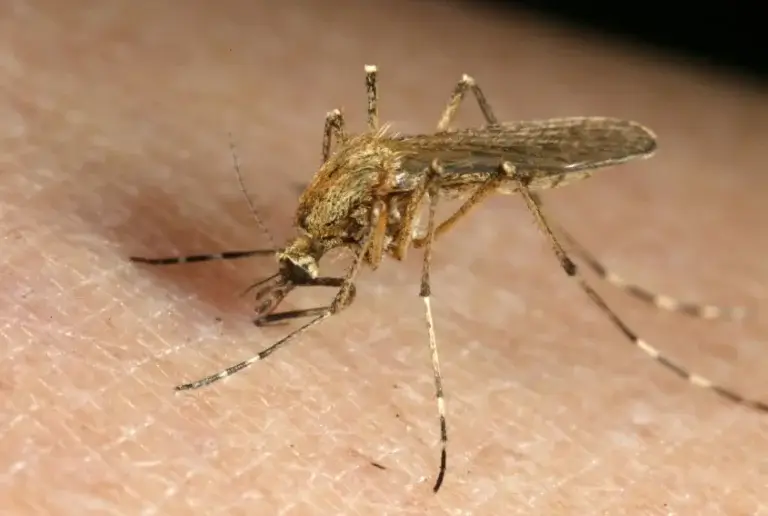
The Marsh Mosquito
The marsh mosquito is commonly referred to as an anopheles mosquito. They are typically brown or reddish-brown with pale spots on their wings and abdomen. They are the primary vectors for malaria in North Carolina.
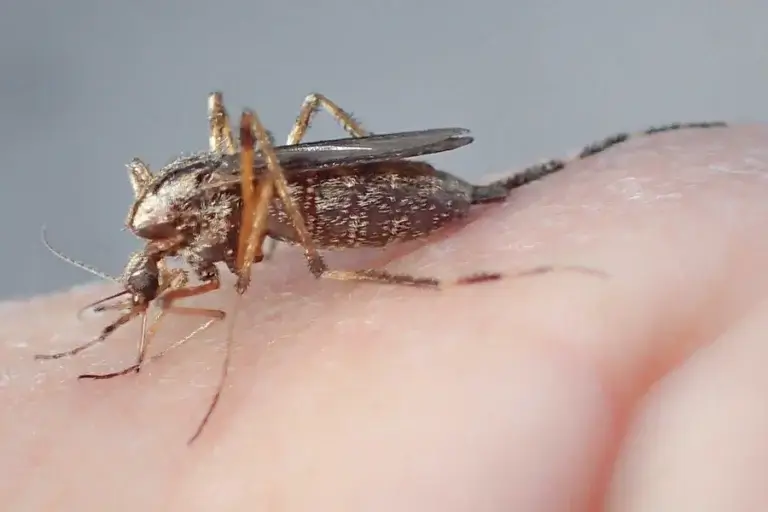
The Gallinipper Mosquito
The gallinipper mosquito is a large, dark mosquito with distinctively patterned legs. While they are a nuisance due to their aggressive biting behavior, they are not known to transmit diseases.
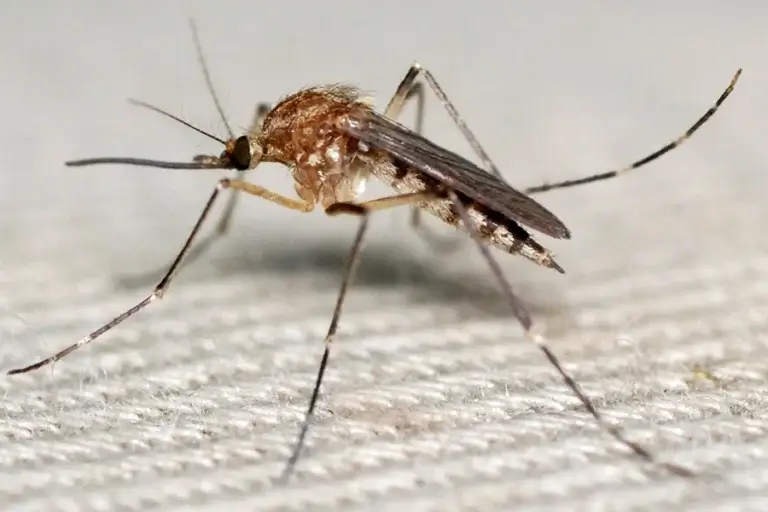
The Woodland Mosquito
The woodland mosquito, Culiseta incidens, is a medium-sized brown mosquito. They are primarily found in wooded areas and do not typically transmit diseases to humans.

Mosquito FAQ:
How many species of mosquitoes are there?
Currently, 200 species of mosquito have been identified in North America, and over 2,500 species have been identified worldwide.
Are mosquitoes dangerous?
Mosquitoes are considered one of the most dangerous animals in the world. That’s because they transmit diseases that can seriously affect health. The Asian tiger mosquito is a known transmitter of West Nile virus, and encephalitis. They’re also a primary vector of Chikungunya. There is some concern that Asian tigers may play a part in spreading the Zika virus, however there is not enough research to answer conclusively. Eastern treehole mosquitoes are the main vector La Crosse encephalitis and also carry Eastern equine encephalitis and the West Nile Virus.
What attracts mosquitoes?
In order to breed, female mosquitoes must lay their eggs in standing or stagnant water. Water sources can be ditches, ponds, and in water that has accumulated in tree and ground holes but is often wheelbarrows, buckets, kiddie pools, and even tarps. In addition to water, females require a blood meal in order to breed so if a property has people or animals, it’s likely to attract mosquitoes. Both female and male mosquitoes feed on plant nectar which means if you have flowering vegetation, you’re going to see mosquitoes. If you’re yard has shrubs, tall grass or weeds, mosquitoes will likely be found among them, resting.
How do you get rid of mosquitoes?
You cannot completely prevent mosquitoes but professional mosquito treatments can significantly reduce their numbers. At A-1 Pest Control, we offer seasonal mosquito control services that kill adult mosquitoes in your yard or on your property. We also treat breeding sites to eliminate eggs and disrupt the breeding cycle. Our treatments are administered every month, April through October, to ensure that you can enjoy your property! For more information about our seasonal mosquito treatments, please contact us.
How do you make your property less appealing to mosquitoes?
In addition to implementing a mosquito control plan during mosquito season, we recommend the following mosquito prevention tips:
- Mow your lawn regularly.
- Cut back or remove overgrown vegetation from your property.
- Fill in holes and eliminate other sources of standing water.
- Make sure that gutters are clear of debris and that the downspouts direct water away from the structure.
- Store buckets, wheelbarrows, and other items that collect water upside down when not in use.
- Do not leave your pet’s water dish outside.
- Change out water in your child’s wading pool and in bird baths, if applicable.
- Keep mosquitoes out of your home with window screens that are free of rips.
- Install screen doors if you keep your entry door open during the warmer months.
What types of diseases do mosquitoes transmit?
Mosquitoes can carry a variety of diseases, primarily transmitted through their bites. Those include malaria, Dengue Fever, Zika, yellow fever, and viral encephalitis.
Do all mosquitoes feed on humans?
While some mosquitoes prefer to feed on humans, many actually prefer other prey, like birds or reptiles.
What to Do if You Get Bit by a Mosquito
If you are the unfortunate victim of a mosquito bite, you’ll likely experience a bit of itchiness and inflammation at the site of the bite. Here are some remedies to try out to ease a bit of that discomfort:
Over-the-Counter Antihistamines
Over-the-counter antihistamines, such as diphenhydramine (Benadryl) or cetirizine (Zyrtec), can help reduce itching and inflammation by blocking the histamine response triggered by mosquito bites. Follow the dosage instructions on the packaging, and consult with a healthcare professional if you have any concerns or are taking other medications.
Topical Anti-itch Creams
There are various over-the-counter creams and ointments designed specifically to relieve itching and inflammation from insect bites. Look for products containing ingredients like hydrocortisone or calamine lotion, which can help soothe the affected area when applied as directed.
Natural Remedies
Several natural remedies can also provide relief from mosquito bites:
Aloe Vera: Apply fresh aloe vera gel to the bite. Aloe vera has anti-inflammatory and soothing properties.
Honey: Dab a small amount of honey onto the mosquito bite. Honey has antibacterial properties and can help reduce itching.
Tea Tree Oil: Dilute a few drops of tea tree oil with a carrier oil (such as coconut oil) and apply it to the bite. Tea tree oil has anti-inflammatory and antiseptic properties.
Baking Soda Paste: Mix a small amount of baking soda with water to create a paste and apply it to the bite. This can help reduce itching and inflammation.
Avoid Scratching
We know, we know: This one’s easier said than done. But, if you can, try to avoid scratching the bite. This can help in preventing further irritation and potential infection.
With all this in mind, there’s one extremely important caveat to these at-home fixes: If you notice that the mosquito bite is continually swelling or if you’re experiencing symptoms such as fever, lethargy, nausea, contact your doctor immediately.
Helpful Mosquito Articles
Year-Round Prevention For Mosquitoes
Dangers Mosquitoes Pose To North Carolina Residents and Families
Recommended Program for This Pest:

Initial Treatment
Only $
What's Included:
- Year-Round Protection
- Covers 15+ Pests
- Free Re-treatments
- Stinging Insect Control on the Structure
- Seasonal Mosquito Treatments
- Sentricon Termite Protection
- 10 Treatments
- Outdoor Tick & Flea Control
- Indoor Flea Treatments
- Fire Ant Control
Contact Us
Please fill out this form and we will get back to you shortly.
"*" indicates required fields
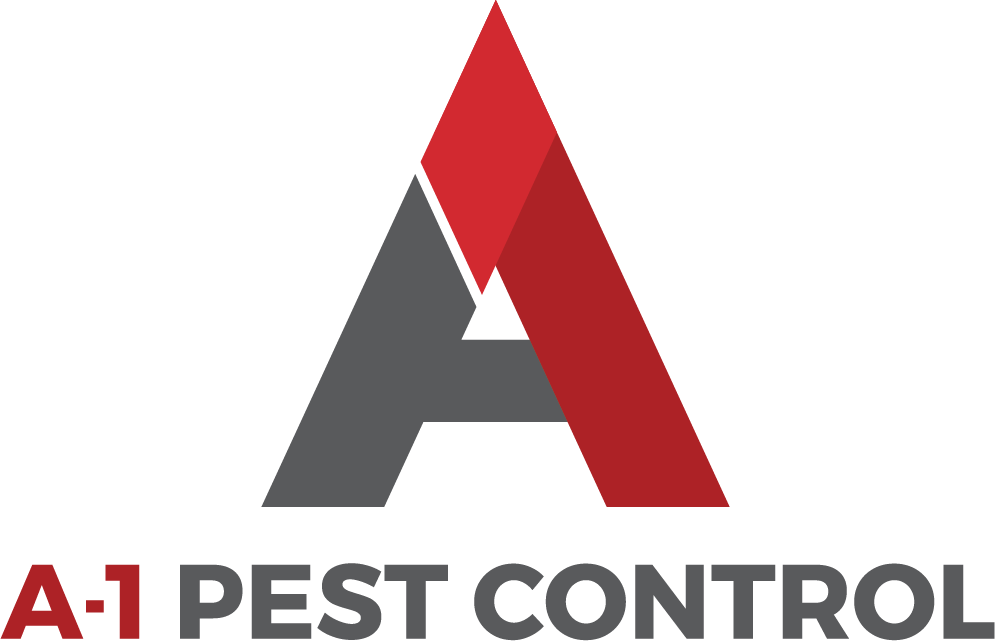
About A-1 Termite Control
If you’re looking for mosquito control in North Carolina, A-1 Pest Control has you covered, from mosquito prevention to extermination. Our family owned and operated company has been taking care of our community for over 50 years, with pest control plans that tackle everything from termites to ticks to nearly any pest you can think of. Our commitment to quality work and continued education has set us apart for decades, and we are proud to help our neighbors create happier, healthier homes.
We serve Lenoir, Mooresville, Blowing Rock, West Jefferson, Hickory, and surrounding areas in Western North Carolina.

